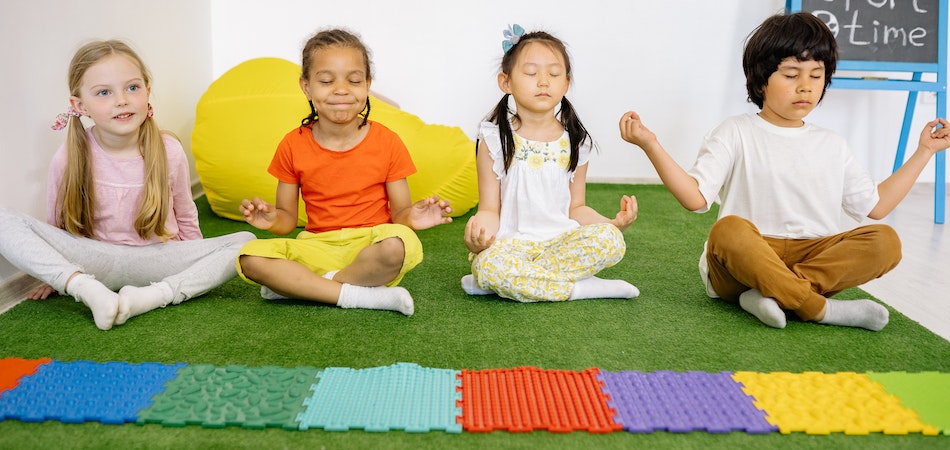In today’s digital age, where screens dominate children’s lives, it is crucial to introduce practices that promote their physical and emotional well-being. Among various physical activities, yoga has emerged as a popular and effective choice for kids. This ancient practice not only enhances flexibility and strength but also nurtures emotional resilience, mindfulness, and self-awareness. Let’s us explore the multitude of benefits that yoga brings to children’s physical and emotional health.
Physical Fitness:
Yoga offers numerous physical benefits that contribute to children’s overall fitness.
– Yoga postures (asanas) involve stretching and bending, improving flexibility and range of motion.
– It strengthens core muscles, arms, and legs, enhancing balance and stability.
– Yoga emphasizes proper alignment and body awareness, encouraging children to maintain good posture.
Emotional Well-being:
Yoga equips children with valuable tools to navigate emotions, develop self-confidence, and foster a positive mindset.
– Deep breathing exercises in yoga help children manage stress, anxiety, and overwhelming emotions.
– Yoga encourages children to observe their thoughts and feelings without judgment, teaching them to respond thoughtfully instead of reacting impulsively.
– By focusing on their breath, children learn to engage fully with the present moment, cultivating mindfulness.
Improved Sleep Patterns:
Regular yoga practice significantly improves sleep quality, addressing common sleep-related issues among children.
– Yoga reduces stress levels and promotes relaxation, preparing children’s bodies for restful sleep.
– Gentle movements, focused breathing exercises, and relaxation techniques create an optimal environment for relaxation.
– Improved sleep patterns lead to increased energy, enhanced cognitive abilities, and overall balanced well-being.
Social Learning:
Group yoga sessions provide children with valuable opportunities to connect with others, develop empathy, and build relationships.
– Partner poses and cooperative games promote teamwork and communication skills.
– Shared experiences in yoga foster a sense of belonging and community.
– By supporting and uplifting each other, children learn empathy, compassion, and inclusivity.
Enhanced Academic Performance:
Practicing yoga contributes to academic success by reducing distractions and improving cognitive functions.
– The mind-body connection established through yoga enhances memory and attentiveness in the classroom.
– Reduced distractions allow children to stay engaged and focused, leading to improved academic performance.
Yoga is a holistic practice that offers a myriad of benefits for children’s physical and emotional well-being. By incorporating yoga into their daily routines, children experience improved physical fitness, emotional resilience, enhanced social skills, and even better academic performance. Let us unroll the mats, strike a pose, and introduce our children to the transformative power of yoga, fostering a healthier and more balanced life.











































